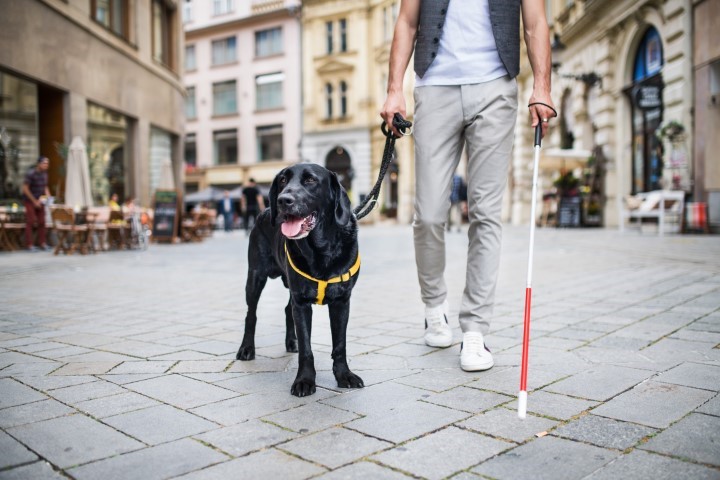Bio-degradable cards
Every card imaginable!
|
Bio-degradable cards Every card imaginable! Where Can I Buy an Assistance Dog ID Card
Assistance Dog ID CardsIn a society that strives for inclusivity and understanding, assistance dogs play a crucial role in the lives of many individuals, offering not just companionship but invaluable support with a range of needs. However, the question often arises: "Where can I buy an Assistance Dog ID card?" especially given the lack of an official register for assistance dogs in the UK. Types of Assistance Dogs and Their TrainingAssistance dogs are incredibly versatile, supporting individuals with physical disabilities, chronic illnesses, or neurological disorders. Their training is extensive and tailored to the specific needs of their handler. For example, they can learn to operate light switches, open and close doors, and even assist with transactions in stores. These dogs are also trained to work in a variety of environments, ensuring they can provide support no matter where their handler goes. The bond between an assistance dog and their handler is built on trust and mutual respect, allowing the dog to anticipate the needs of their handler and act accordingly. Autism Assistance DogAutism assistance dogs provide a unique form of support, offering not just physical assistance but emotional grounding for individuals with autism. Their training includes recognizing and responding to signs of distress or anxiety in their handler, providing a comforting presence that can help mitigate the effects of sensory overload. Additionally, these dogs can act as a social bridge, helping individuals with autism navigate social interactions more comfortably. The presence of an autism assistance dog can also offer a sense of safety to parents and caregivers, knowing their loved one has a constant companion. Diabetic Alert DogThe training of diabetic alert dogs focuses on scent detection. These dogs are trained to detect the subtle changes in their handler's body chemistry that indicate a drop or rise in blood sugar levels. This ability requires extensive training in scent discrimination and alerting behaviors, ensuring the dog can communicate effectively with their handler. The early alert provided by these dogs allows individuals with diabetes to manage their condition proactively, significantly reducing the risk of potentially life-threatening episodes. Emotional Support DogEmotional support dogs provide comfort and reassurance to individuals facing mental health challenges such as anxiety, depression, and PTSD. While they are not always trained for specific tasks, their selection and training focus on temperament, ensuring they can provide a stable and comforting presence. The companionship of an emotional support dog can significantly enhance the well-being of their handlers, offering unconditional love and a focus for care and attention. Guide DogGuide dogs undergo intensive training to navigate safely and efficiently, ensuring their handler's independence and mobility. This training includes obstacle avoidance, understanding traffic patterns, and responding to directional commands. The selection process for guide dogs ensures they are not only physically suited to the task but also have the temperament to remain calm and focused in a variety of environments. The partnership between a guide dog and their handler is a deep bond of trust, with each relying on the other for guidance and safety. Hearing DogHearing dogs are trained to recognize specific sounds and alert their handlers through physical touch. This training includes distinguishing between sounds that require immediate attention, like smoke alarms, and those that are part of everyday life, like a ringing telephone. These dogs provide an essential service for individuals who are deaf or hard of hearing, ensuring they are aware of their environment and can respond appropriately to situations that might otherwise go unnoticed. Mobility Assistance DogMobility assistance dogs support individuals with physical disabilities, offering stability and assistance with movement. Their training includes pulling wheelchairs, assisting with balance and transfers, and retrieving dropped items. These dogs are trained to work in close physical proximity to their handlers, responding to subtle cues and commands to provide support exactly when and where it's needed. Seizure Alert DogThe training of seizure alert dogs is one of the most remarkable, as it involves detecting the onset of a seizure before it occurs. While the exact mechanism by which dogs are able to detect seizures is still being studied, their ability to provide advance warning is invaluable. This alert allows individuals with seizure disorders to take preventative measures, ensuring their safety. The training of these dogs also includes behaviors to support their handler during and after a seizure, providing physical stability and emotional comfort. Therapy DogTherapy dogs are trained to provide affection and comfort to individuals in hospitals, schools, nursing homes, and other environments where emotional support is needed. Their training focuses on socialization and gentle interaction, ensuring they can engage with a variety of people under different circumstances. The presence of a therapy dog can bring joy, comfort, and a sense of calm to those facing difficult situations, demonstrating the powerful impact of the human-animal bond. 
Trusting Our CustomersAt The Card Project UK, we understand the essential roles assistance dogs play in their handlers' lives. These dogs are more than just pets; they're invaluable companions, helping with everything from navigating the streets to providing emotional support. We know the challenges that can come from not having an official registry for assistance dogs, which is why we've made it our mission to offer a hassle-free solution.
© 2024 The Card Project Uk Ltd
VAT: 453 2087 06
|